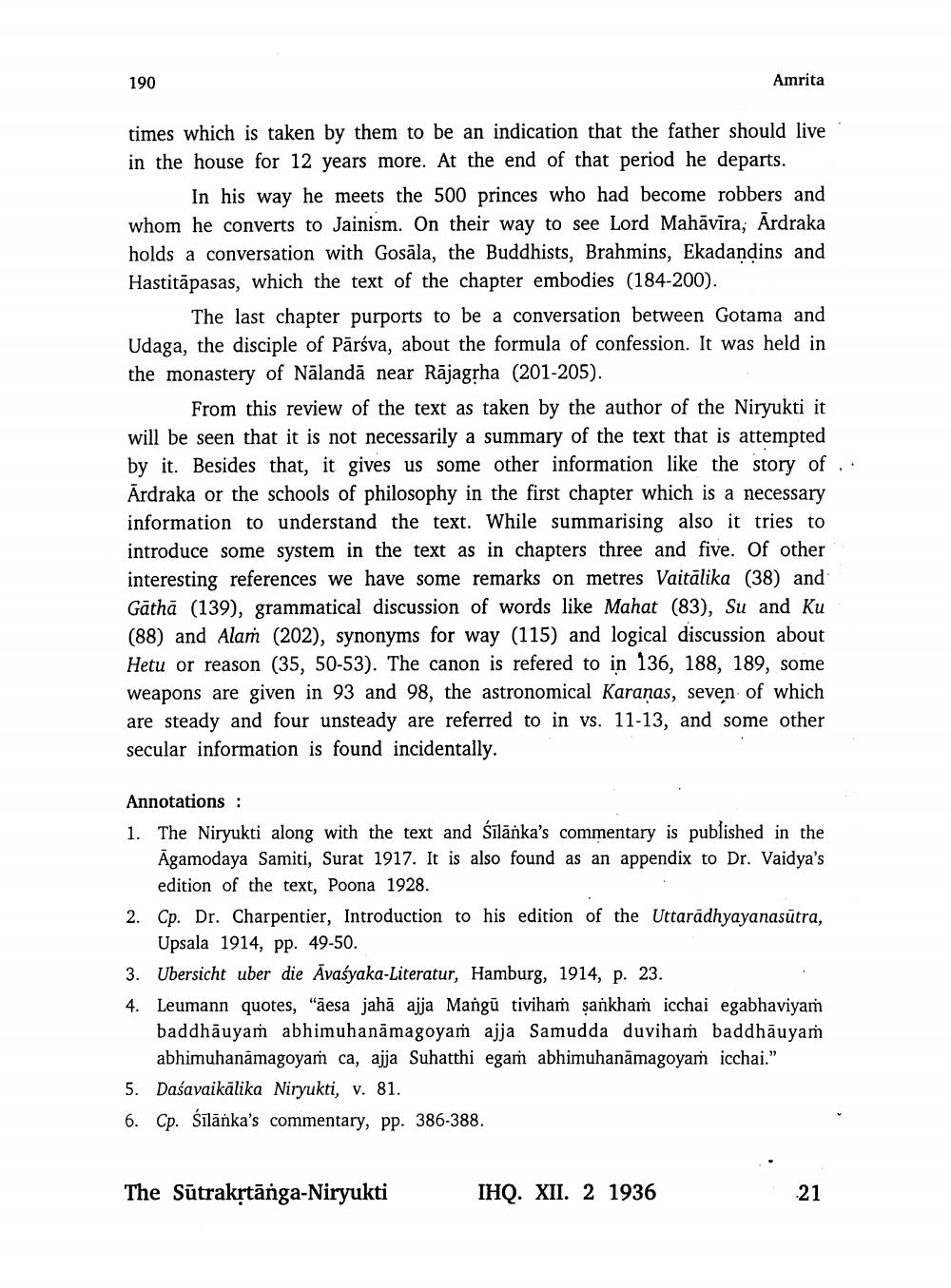________________
190
Amrita
times which is taken by them to be an indication that the father should live in the house for 12 years more. At the end of that period he departs.
In his way he meets the 500 princes who had become robbers and whom he converts to Jainism. On their way to see Lord Mahāvīra, Ārdraka holds a conversation with Gosāla, the Buddhists, Brahmins, Ekadandins and Hastitāpasas, which the text of the chapter embodies (184-200).
The last chapter purports to be a conversation between Gotama and Udaga, the disciple of Pārsva, about the formula of confession. It was held in the monastery of Nālandā near Rājagrha (201-205).
From this review of the text as taken by the author of the Niryukti it will be seen that it is not necessarily a summary of the text that is attempted by it. Besides that, it gives us some other information like the story of.. Ārdraka or the schools of philosophy in the first chapter which is a necessary information to understand the text. While summarising also it tries to introduce some system in the text as in chapters three and five. Of other interesting references we have some remarks on metres Vaitālika (38) and Gāthā (139), grammatical discussion of words like Mahat (83), Su and Ku (88) and Alam (202), synonyms for way (115) and logical discussion about Hetu or reason (35, 50-53). The canon is refered to in 136, 188, 189, some weapons are given in 93 and 98, the astronomical Karanas, seven of which are steady and four unsteady are referred to in vs. 11-13, and some other secular information is found incidentally.
Annotations : 1. The Niryukti along with the text and Sīlānka's commentary is published in the
Āgamodaya Samiti, Surat 1917. It is also found as an appendix to Dr. Vaidya's
edition of the text, Poona 1928. 2. Cp. Dr. Charpentier, Introduction to his edition of the Uttaradhyayanasūtra,
Upsala 1914, pp. 49-50. 3. Ubersicht uber die Āvasyaka-Literatur, Hamburg, 1914, p. 23. 4. Leumann quotes, "ãesa jahā ajja Mangū tiviham sankham icchai egabhaviyam
baddhāuyam abhimuhanāmagoyam ajja Samudda duviham baddhāuyam
abhimuhanāmagoyam ca, ajja Suhatthi egam abhimuhanāmagoyam icchai." 5. Daśavaikālika Niryukti, v. 81. 6. Cp. śīlānka's commentary, pp. 386-388.
The Sūtrakrtānga-Niryukti
IHỌ. XII. 2 1936




